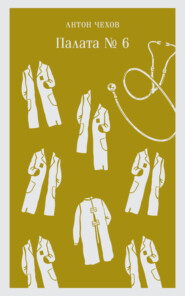По всем вопросам обращайтесь на: info@litportal.ru
(©) 2003-2024.
✖
The Duel and Other Stories
Настройки чтения
Размер шрифта
Высота строк
Поля
"Once a month one needs something to brighten one up.. something out of the common round," he thought, "something that would give the stagnant organism a good shaking up, a reaction.. whether it's a drinking bout, or.. Susanna. One can't get on without it."
It was getting dark when he drove into the yard of the vodka distillery. From the open windows of the owner's house came sounds of laughter and singing:
"'Brighter than lightning, more burning than flame..'"
sang a powerful, mellow, bass voice.
"Aha! she has visitors," thought Kryukov.
And he was annoyed that she had visitors.
"Shall I go back?" he thought with his hand on the bell, but he rang all the same, and went up the familiar staircase. From the entry he glanced into the reception hall. There were about five men there – all landowners and officials of his acquaintance; one, a tall, thin gentleman, was sitting at the piano, singing, and striking the keys with his long, thin fingers. The others were listening and grinning with enjoyment. Kryukov looked himself up and down in the looking-glass, and was about to go into the hall, when Susanna Moiseyevna herself darted into the entry, in high spirits and wearing the same black dress… Seeing Kryukov, she was petrified for an instant, then she uttered a little scream and beamed with delight.
"Is it you?" she said, clutching his hand. "What a surprise!"
"Here she is!" smiled Kryukov, putting his arm round her waist.
"Well! Does the destiny of Europe still lie in the hands of the
French and the Russians?"
"I'm so glad," laughed the Jewess, cautiously removing his arm.
"Come, go into the hall; they're all friends there… I'll go and tell them to bring you some tea. Your name's Alexey, isn't it?
Well, go in, I'll come directly.."
She blew him a kiss and ran out of the entry, leaving behind her the same sickly smell of jasmine. Kryukov raised his head and walked into the hall. He was on terms of friendly intimacy with all the men in the room, but scarcely nodded to them; they, too, scarcely responded, as though the places in which they met were not quite decent, and as though they were in tacit agreement with one another that it was more suitable for them not to recognise one another.
From the hall Kryukov walked into the drawing-room, and from it into a second drawing-room. On the way he met three or four other guests, also men whom he knew, though they barely recognised him. Their faces were flushed with drink and merriment. Alexey Ivanovitch glanced furtively at them and marvelled that these men, respectable heads of families, who had known sorrow and privation, could demean themselves to such pitiful, cheap gaiety! He shrugged his shoulders, smiled, and walked on.
"There are places," he reflected, "where a sober man feels sick, and a drunken man rejoices. I remember I never could go to the operetta or the gipsies when I was sober: wine makes a man more good-natured and reconciles him with vice.."
Suddenly he stood still, petrified, and caught hold of the door-post with both hands. At the writing-table in Susanna's study was sitting Lieutenant Alexandr Grigoryevitch. He was discussing something in an undertone with a fat, flabby-looking Jew, and seeing his cousin, flushed crimson and looked down at an album.
The sense of decency was stirred in Kryukov and the blood rushed to his head. Overwhelmed with amazement, shame, and anger, he walked up to the table without a word. Sokolsky's head sank lower than ever. His face worked with an expression of agonising shame.
"Ah, it's you, Alyosha!" he articulated, making a desperate effort to raise his eyes and to smile. "I called here to say good-bye, and, as you see… But to-morrow I am certainly going."
"What can I say to him? What?" thought Alexey Ivanovitch. "How can
I judge him since I'm here myself?"
And clearing his throat without uttering a word, he went out slowly.
"'Call her not heavenly, and leave her on earth..'"
The bass was singing in the hall. A little while after, Kryukov's racing droshky was bumping along the dusty road.
NEIGHBOURS
PYOTR MIHALITCH IVASHIN was very much out of humour: his sister, a young girl, had gone away to live with Vlassitch, a married man. To shake off the despondency and depression which pursued him at home and in the fields, he called to his aid his sense of justice, his genuine and noble ideas – he had always defended free-love! – but this was of no avail, and he always came back to the same conclusion as their foolish old nurse, that his sister had acted wrongly and that Vlassitch had abducted his sister. And that was distressing.
His mother did not leave her room all day long; the old nurse kept sighing and speaking in whispers; his aunt had been on the point of taking her departure every day, and her trunks were continually being brought down to the hall and carried up again to her room. In the house, in the yard, and in the garden it was as still as though there were some one dead in the house. His aunt, the servants, and even the peasants, so it seemed to Pyotr Mihalitch, looked at him enigmatically and with perplexity, as though they wanted to say "Your sister has been seduced; why are you doing nothing?" And he reproached himself for inactivity, though he did not know precisely what action he ought to have taken.
So passed six days. On the seventh – it was Sunday afternoon – a messenger on horseback brought a letter. The address was in a familiar feminine handwriting: "Her Excy. Anna Nikolaevna Ivashin." Pyotr Mihalitch fancied that there was something defiant, provocative, in the handwriting and in the abbreviation "Excy." And advanced ideas in women are obstinate, ruthless, cruel.
"She'd rather die than make any concession to her unhappy mother, or beg her forgiveness," thought Pyotr Mihalitch, as he went to his mother with the letter.
His mother was lying on her bed, dressed. Seeing her son, she rose impulsively, and straightening her grey hair, which had fallen from under her cap, asked quickly:
"What is it? What is it?"
"This has come." said her son, giving her the letter.
Zina's name, and even the pronoun "she" was not uttered in the house. Zina was spoken of impersonally: "this has come," "Gone away," and so on… The mother recognised her daughter's handwriting, and her face grew ugly and unpleasant, and her grey hair escaped again from her cap.
"No!" she said, with a motion of her hands, as though the letter scorched her fingers. "No, no, never! Nothing would induce me!"
The mother broke into hysterical sobs of grief and shame; she evidently longed to read the letter, but her pride prevented her. Pyotr Mihalitch realised that he ought to open the letter himself and read it aloud, but he was overcome by anger such as he had never felt before; he ran out into the yard and shouted to the messenger:
"Say there will be no answer! There will be no answer! Tell them that, you beast!"
And he tore up the letter; then tears came into his eyes, and feeling that he was cruel, miserable, and to blame, he went out into the fields.
He was only twenty-seven, but he was already stout. He dressed like an old man in loose, roomy clothes, and suffered from asthma. He already seemed to be developing the characteristics of an elderly country bachelor. He never fell in love, never thought of marriage, and loved no one but his mother, his sister, his old nurse, and the gardener, Vassilitch. He was fond of good fare, of his nap after dinner, and of talking about politics and exalted subjects. He had in his day taken his degree at the university, but he now looked upon his studies as though in them he had discharged a duty incumbent upon young men between the ages of eighteen and twenty-five; at any rate, the ideas which now strayed every day through his mind had nothing in common with the university or the subjects he had studied there.
In the fields it was hot and still, as though rain were coming. It was steaming in the wood, and there was a heavy fragrant scent from the pines and rotting leaves. Pyotr Mihalitch stopped several times and wiped his wet brow. He looked at his winter corn and his spring oats, walked round the clover-field, and twice drove away a partridge with its chicks which had strayed in from the wood. And all the while he was thinking that this insufferable state of things could not go on for ever, and that he must end it one way or another. End it stupidly, madly, but he must end it.
"But how? What can I do?" he asked himself, and looked imploringly at the sky and at the trees, as though begging for their help.
But the sky and the trees were mute. His noble ideas were no help, and his common sense whispered that the agonising question could have no solution but a stupid one, and that to-day's scene with the messenger was not the last one of its kind. It was terrible to think what was in store for him!
As he returned home the sun was setting. By now it seemed to him that the problem was incapable of solution. He could not accept the accomplished fact, and he could not refuse to accept it, and there was no intermediate course. When, taking off his hat and fanning himself with his handkerchief, he was walking along the road, and had only another mile and a half to go before he would reach home, he heard bells behind him. It was a very choice and successful combination of bells, which gave a clear crystal note. No one had such bells on his horses but the police captain, Medovsky, formerly an officer in the hussars, a man in broken-down health, who had been a great rake and spendthrift, and was a distant relation of Pyotr Mihalitch. He was like one of the family at the Ivashins' and had a tender, fatherly affection for Zina, as well as a great admiration for her.
"I was coming to see you," he said, overtaking Pyotr Mihalitch.
"Get in; I'll give you a lift."
He was smiling and looked cheerful. Evidently he did not yet know that Zina had gone to live with Vlassitch; perhaps he had been told of it already, but did not believe it. Pyotr Mihalitch felt in a difficult position.
"You are very welcome," he muttered, blushing till the tears came into his eyes, and not knowing how to lie or what to say. "I am delighted," he went on, trying to smile, "but.. Zina is away and mother is ill."
"How annoying!" said the police captain, looking pensively at Pyotr Mihalitch. "And I was meaning to spend the evening with you. Where has Zinaida Mihalovna gone?"
"To the Sinitskys', and I believe she meant to go from there to the monastery. I don't quite know."
The police captain talked a little longer and then turned back. Pyotr Mihalitch walked home, and thought with horror what the police captain's feelings would be when he learned the truth. And Pyotr Mihalitch imagined his feelings, and actually experiencing them himself, went into the house.

















